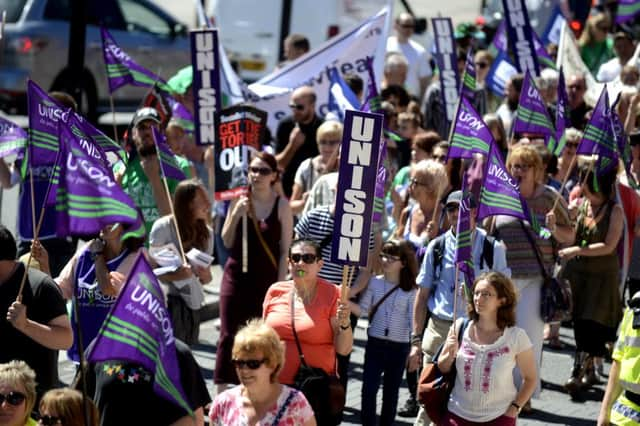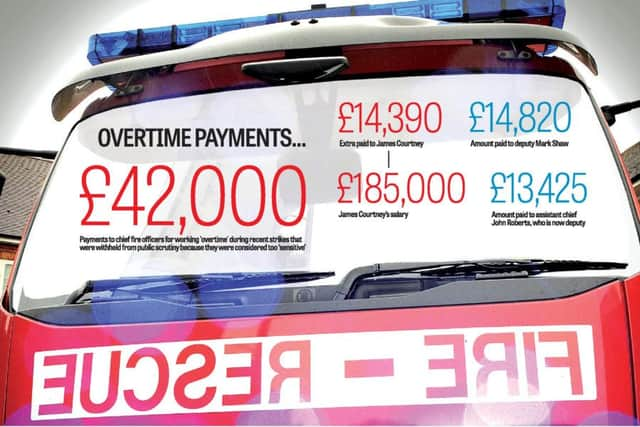Overtime rate for fire chiefs was increased during strike action


As well as the principle of overtime pay not being subjected to scrutiny, an audit report into the payments reveals the hourly rate paid was increased eight months after a series of nationwide strikes began – and backdated to the start of the industrial action in September 2013.
It also found chief officers agreed among themselves to extend the ‘core period’ that overtime could be claimed for from one to two hours before a strike began. Conversely, the length of a normal working day for which overtime could not be claimed was shortened by an hour.
Advertisement
Hide AdAdvertisement
Hide AdIn addition, the report says although the fire authority chairman, Jim Andrews, approved payments on the basis of a previous undisclosed agreement in 2009 he also said he did not actually recall the chief officers being paid overtime during the dispute six years ago.


The report says Coun Andrews agreed the payments on the basis “those officers are working above and beyond their normal duties”.
It adds: “The Chairman and CFO (chief fire officer) both stated that payments had been made in 2009 with the Chairman agreeing that the 2013 payments be made on the same basis.”
But in reference to the 2009 payments the report later says: “The Chairman stated that he did not recall that the CFO and DCFO (deputy chief) at the time had received a payment.”
Advertisement
Hide AdAdvertisement
Hide AdInitial plans for the payments were set out in an email by the then deputy chief fire officer, Mark Shaw, in October 2013 after the first of 49 separate periods of strike action which mainly lasted one, two or four hours.
The email said overtime could not be paid for working during a normal working day, which would be considered to be 9am to 6pm. That was subsequently shortened to 5pm at the request of area managers who also worked during the dispute.
It was also initially agreed overtime would be based on an hourly area manager rate without a 20 per cent addition for being on flexi-duty. But the following May, chief fire officer Jamie Courtney agreed to add the 20 per cent at the request of area managers.
The rate was subsequently increased to £48.61 an hour and backdated, including for chief officers, to the start of the strikes.
Advertisement
Hide AdAdvertisement
Hide AdOvertime could initially include a claim for one hour before the period of strike action to allow for necessary operational preparation. But the report says this was upped to two hours “after just a few strike periods” through a decision “made between the principal officers”.
The audit said as chief officers did not sign in for work there was no specific attendance record for when they worked during the strikes. But it said an examination of spreadsheets maintained by human resources recording their availability had corroborated the overtime claims made.